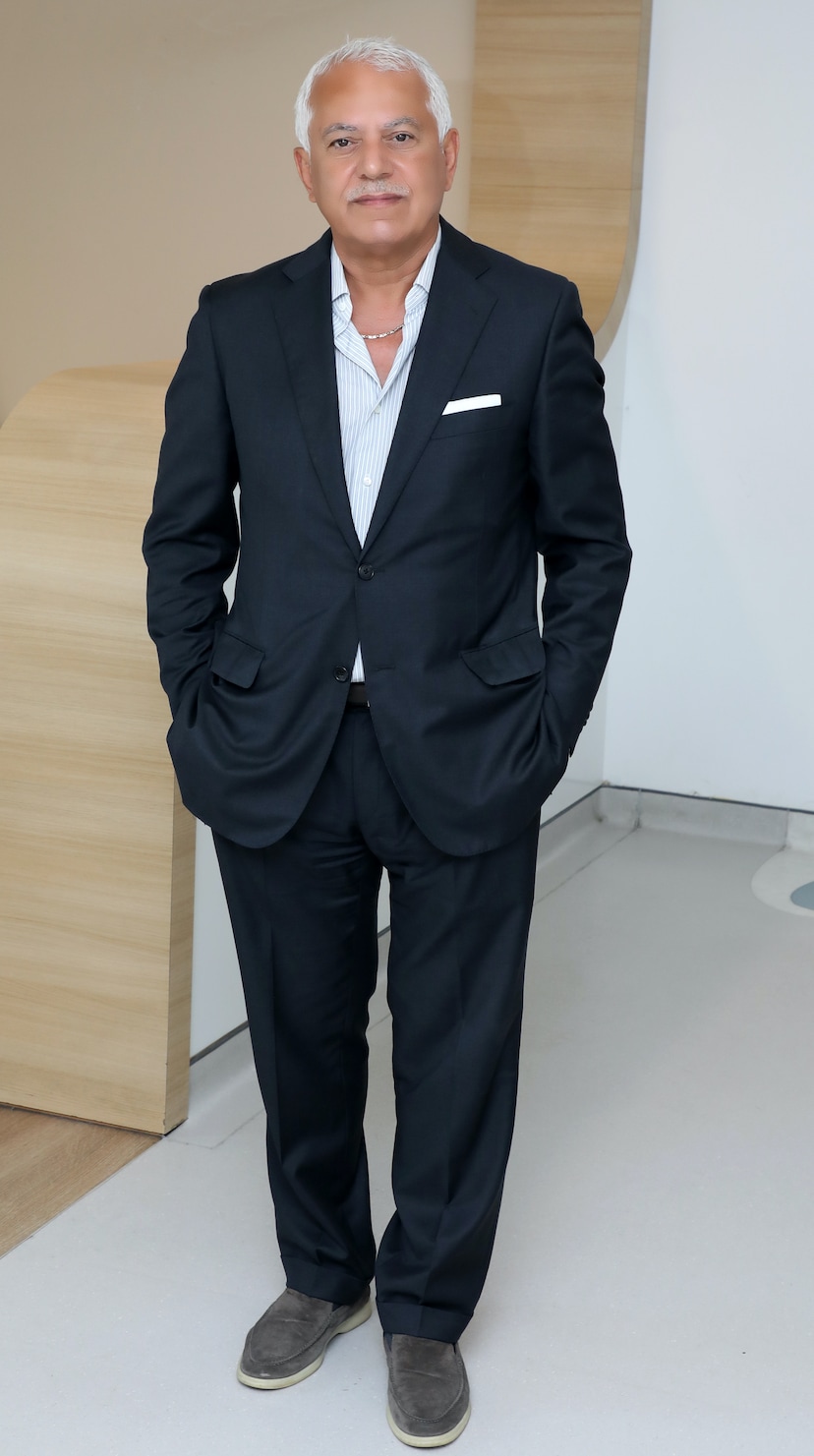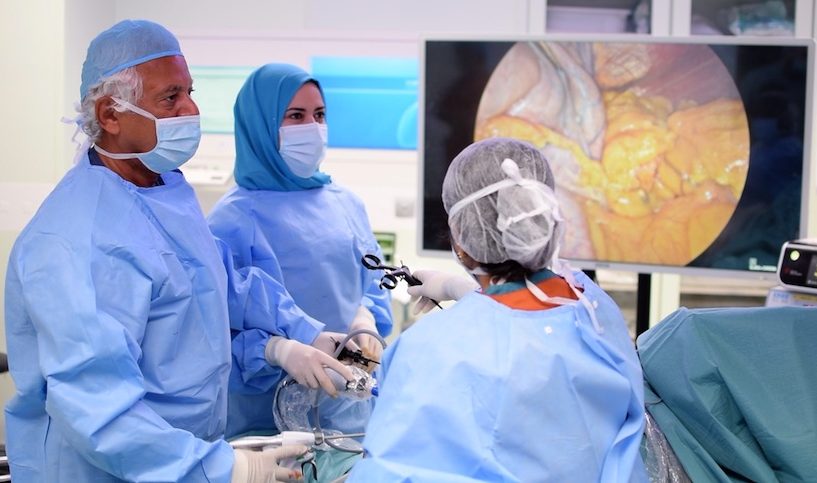Dr. Mousa Khoursheed presence in the room is calming as he begins telling me more about how he became a surgeon. Not only is his calm demeanor an essential trait to firstly soothe a patient’s nerves, it is equally imperative to also handle the pressures of performing surgical procedures. He began, “I liked biology. We were in high school and had to dissect a rabbit. I enjoyed doing the ‘surgery’ for rabbits,” he explained. As a student he was good at math, physics and chemistry and thought he was going to become an engineer but discovered his love for life sciences through a different route. His hobbies included carpentry, building radios and fixing things, he felt that the field of medicine was very similar.
As a surgeon, this logical, no nonsense approach coupled with quiet determination make him perfectly suited for the job. After graduating as a surgeon he went on to become a Professor of Surgery, and he also became a Fellow of the Royal College of Surgeons in Glasgow (FRCS) and the American College of Surgeons (FACS) as well as a Fellow of the American Society for Metabolic & Bariatric Surgery (FASMBS). Today, he is the Surgery Department Head at Taiba Hospital and leads the department toward constant improvements and growth.
The surgical field has shifted greatly since the invention of laparoscopy in the late 80s. Conventional surgery usually meant that the surgeon needed to create a large incision and cut through tissue and muscle before being able to reach the organ that needed operating on. The patient would also need lots of stitches and there was a high risk of infection, hernias, and long post-operative downtime. Today, surgeons are able to do something called keyhole surgery, where they create a tiny hole for the laparoscope, a fibre-optic instrument that allows doctors to view the organs inside the body or permit small-scale surgery. You can resume your normal life in under a week and can go back to working out after a month, instead of the six-months that were needed for traditional abdominal wall surgery.

Surgeons might still need to perform conventional surgery, but almost 90% of surgeries, especially abdominal ones, are now done using laparoscopy. The field of bariatrics, the medical treatment of those seriously overweight—that is, obesity, has been one that has greatly benefitted and improved from the introduction of laparoscopy. While bariatric surgery is only employed when other methods of weight loss have been tried and failed, it is an important tool in helping people who have exhausted other methods and need stronger intervention for a healthier lifestyle and improved quality of life. Dr. Mousa Khoursheed specializes in this type of surgery and has helped countless patients manage their weight.
Dr. Khoursheed explained that there are several options for patients. “We perform sleeve gastrectomy, gastric bypass surgery and several other kinds of interventions. In fact we [Taiba Hospital] are the only hospital in Kuwait, certified to do endoscopic sleeve gastroplasty. And this is a technique where we can go from the inside the stomach, then suture the stomach without cutting it, which makes it reversible,” Dr Khoursheed told us.
“We say that an operation is successful if the patient loses more than 50% of excess weight and maintains it for five years. Alternatively, there is another definition called the Reynold criteria. And success means that you maintain your BMI below 35,” Dr Khoursheed told us. Bariatric surgery doesn’t just help patients lose weight and keep it off, it helps them manage and reduce the effects of heart disease, high blood pressure, Obstructive sleep apnea, Type 2 diabetes, gastroesophageal reflux disease and osteoarthritis (joint pain). The overall long-term gains are immeasurable in terms of quality of life and health improvements.
Treating obesity is a multidisciplinary effort. In addition to the surgeon you also need a nutritionist, psychologist, an intensivist, an anesthetist, an internist and gastroenterologist. All of these specialities are available and ready at Taiba Hospital, except for psychologists, but patients are referred to specialists who can help them prepare for surgery as well as create new lifelong habits that will help them navigate the world after surgery.
Dr. Khoursheed is very proud of how far the Taiba Hospital surgery department has gone in the field of bariatric surgery. They have been developing and improving the processes they use for treatment as well as training all members of staff and outfitting the operating theaters with the latest and newest equipment.
If you are considering bariatric surgery, Dr. Khoursheed suggests that you do your research. “Abroad, patients can Google surgeons in terms of the scientific merit and scientific qualification of people, how active they are, what they are doing. Are they scientifically sound? Are they publishing? How have they contributed to the literature in the world, have they lectured?” he explains. Unfortunately, many patients just choose the surgeon with the largest social media following instead of the one who has more experience, knowledge and skill. Which is why you need to find a surgeon and a hospital like Dr. Khoursheed and Taiba Hospital who have the knowledge and teams that will support you and provide you with the best medical care available.
Taiba Hospital is located in Sabah Al Salem, off of route 30 on Road 3. Call them 24 hours at 180 80 88. For updates and information, visit the website taibahospital.com, and follow them on Instagram @taibahospital.











